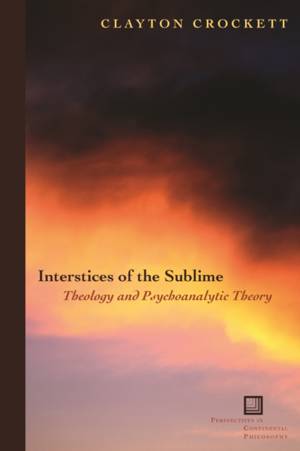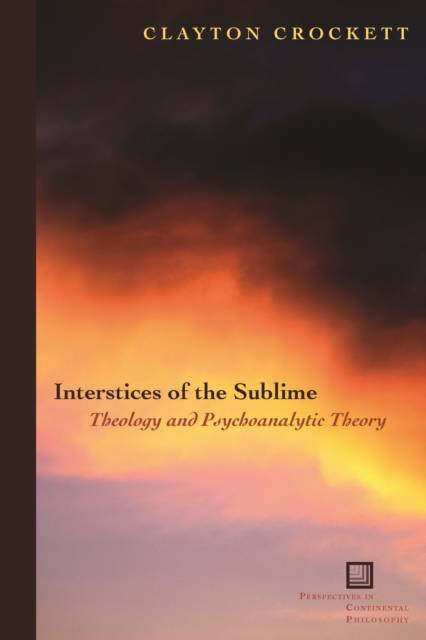
Bedankt voor het vertrouwen het afgelopen jaar! Om jou te bedanken bieden we GRATIS verzending (in België) aan op alles gedurende de hele maand januari.
- Afhalen na 1 uur in een winkel met voorraad
- In januari gratis thuislevering in België
- Ruim aanbod met 7 miljoen producten
Bedankt voor het vertrouwen het afgelopen jaar! Om jou te bedanken bieden we GRATIS verzending (in België) aan op alles gedurende de hele maand januari.
- Afhalen na 1 uur in een winkel met voorraad
- In januari gratis thuislevering in België
- Ruim aanbod met 7 miljoen producten
Zoeken
€ 145,45
+ 290 punten
Uitvoering
Omschrijving
Interstices of the Sublime represents a powerful theological engagement with psychoanalytic theory in Freud, Lacan, Kristeva and Zizek, as well as major expressions of contemporary Continental philosophy, including Deleuze, Derrida, Marion, and Badiou. Through creative and constructive psycho-theological readings of topics such as sublimation, schizophrenia, God, and creation ex nihilo, this book contributes to a new form of radical theological thinking that is deeply involved in the world.
Here the idea of the Kantian sublime is read into Freud and Lacan, and compared with sublimation. The sublime refers to a conflict of the Kantian faculties of reason and imagination, and involves the attempt to represent what is intrinsically unrepresentable. Sublimation, by contrast, involves the expression and partial satisfaction of primal desires in culturally acceptable terms. The sublime is negatively expressed in sublimation, because it is both the "source" of sublimation as well as that which resists being sublimated. That is, the Freudian sublime is related to the process of sublimation, but it also distorts or disrupts sublimation, and invokes what Lacan calls the Real. The effects of the sublime are not just psychoanalytic but, importantly, theological, because the sublime is the main form that "God" takes in the modern world. A radical postmodern theology attends to the workings of the sublime in our thinking and living, and provides resources to understand the complexity of reality. This book is one of the first sustained theological readings of Lacan in English.Specificaties
Betrokkenen
- Auteur(s):
- Uitgeverij:
Inhoud
- Aantal bladzijden:
- 232
- Taal:
- Engels
- Reeks:
Eigenschappen
- Productcode (EAN):
- 9780823227211
- Verschijningsdatum:
- 15/05/2007
- Uitvoering:
- Hardcover
- Formaat:
- Genaaid
- Afmetingen:
- 157 mm x 229 mm
- Gewicht:
- 408 g

Alleen bij Standaard Boekhandel
+ 290 punten op je klantenkaart van Standaard Boekhandel
Beoordelingen
We publiceren alleen reviews die voldoen aan de voorwaarden voor reviews. Bekijk onze voorwaarden voor reviews.









